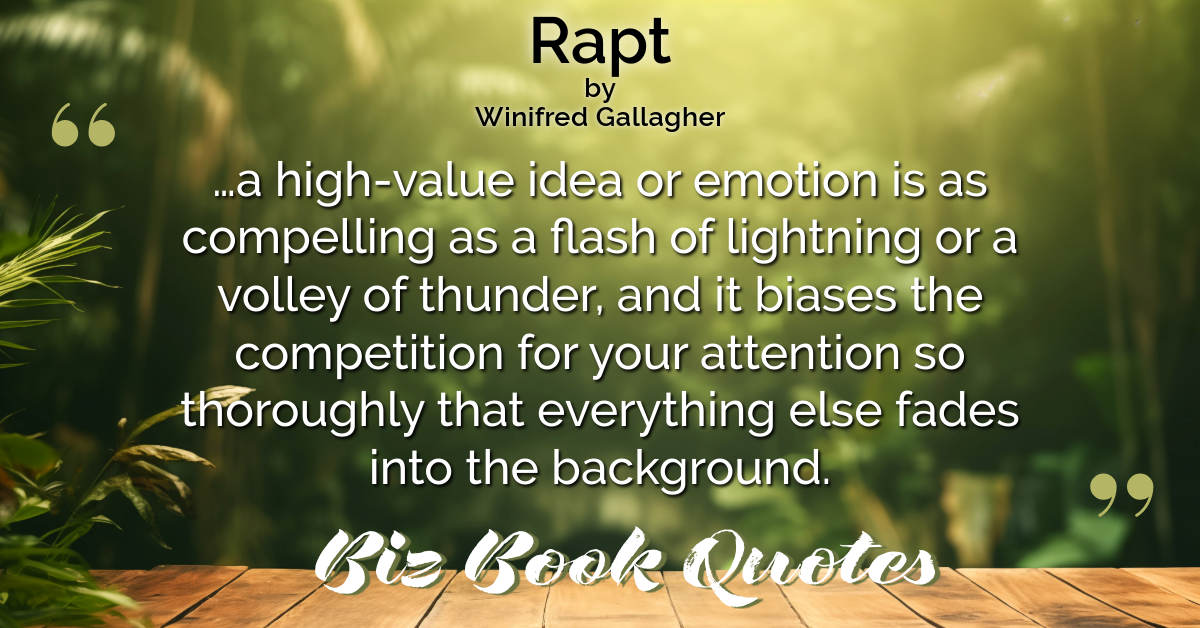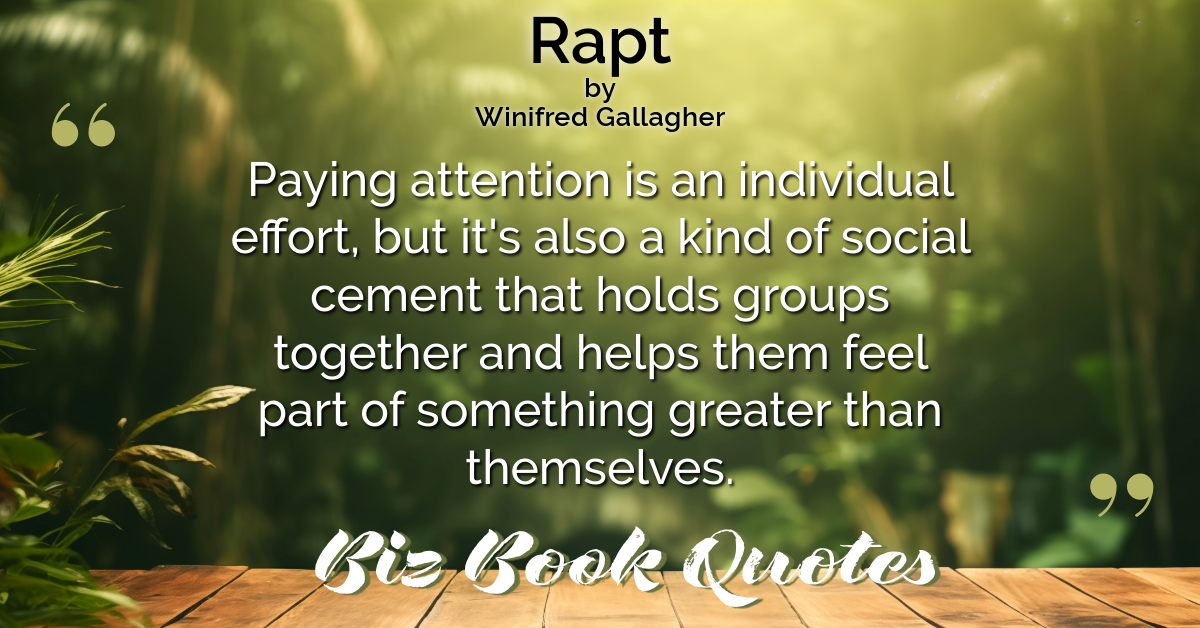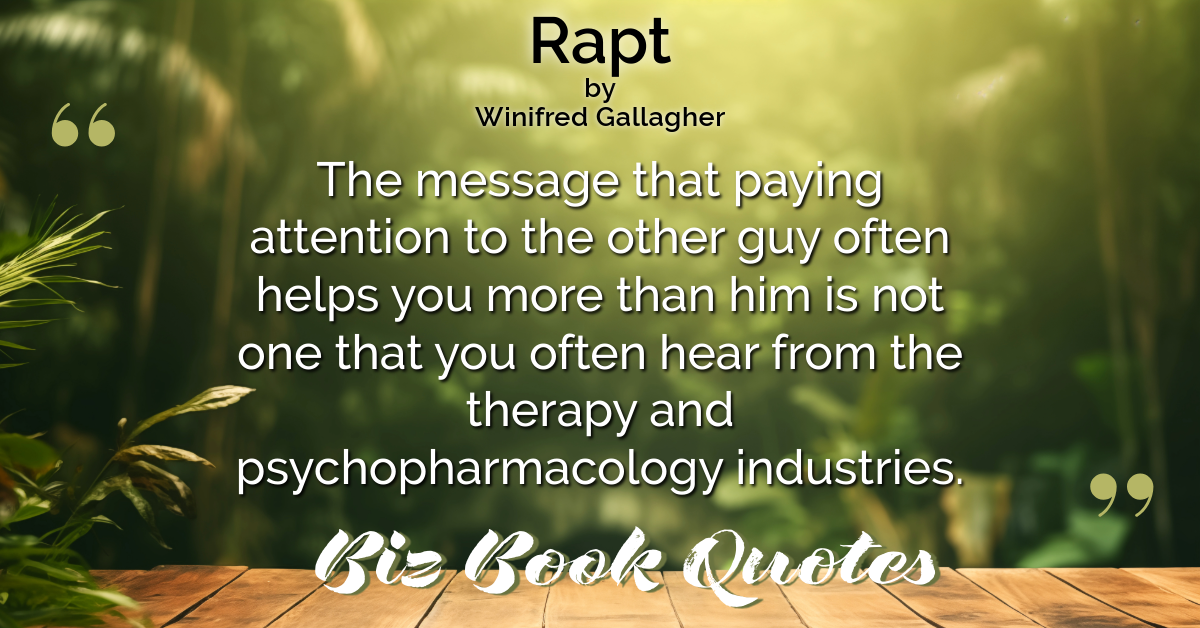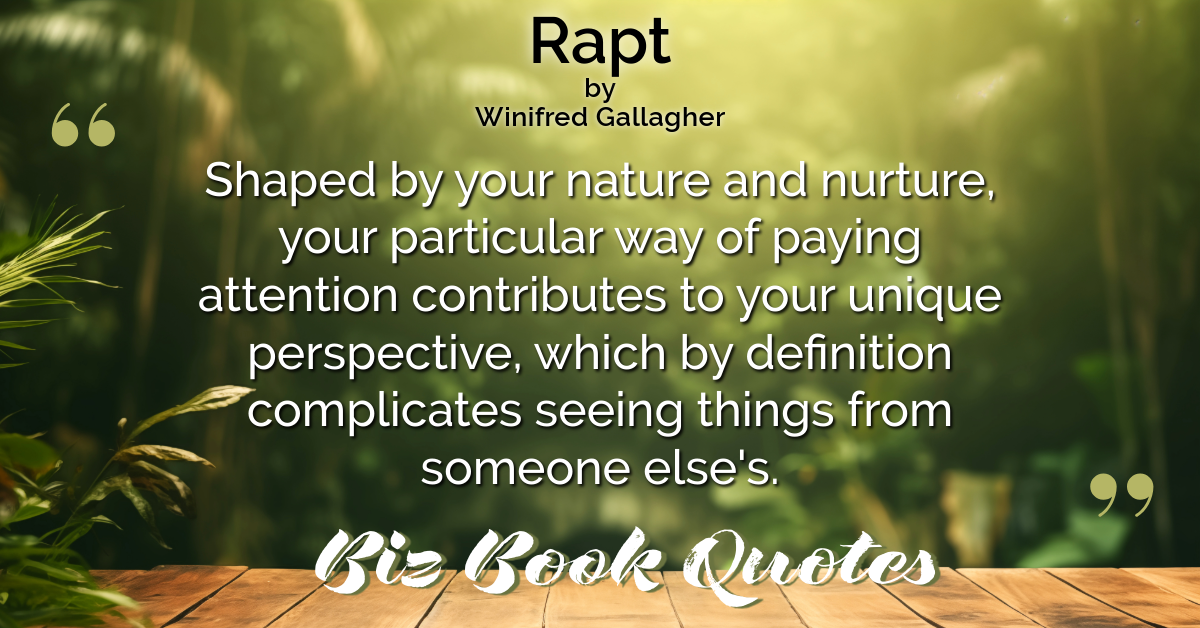 |
…no matter who you are, your joie de vivre mostly derives from paying attention to someone or something that interests you.
|
012 |
 |
The real problem is that we don’t appreciate our own ability to use attention to select and create truly satisfying experience.
|
013 |
 |
…if you want to master and retain certain material… you’d best really pay attention to it in the first place.
|
025 |
 |
…a high-value idea or emotion is as compelling as a flash of lightning or a volley of thunder, and it biases the competition for your attention so thoroughly that everything else fades into the background.
|
031 |
 |
All relationships involve give-and-take and cooperation, so a person who habitually attends to ordinary requests or suggestions like a bull to a red flag is in for big trouble…
|
057 |
 |
New research… shows that what you pay attention to, and how, can actually change your brain and thus your behavior.
|
067 |
 |
…simply paying attention to someone else – the essence of bonding – is highly beneficial for both parties.
|
084 |
 |
Paying attention is an individual effort, but it’s also a kind of social cement that holds groups together and helps them feel part of something greater than themselves.
|
085 |
 |
The message that paying attention to the other guy often helps you more than him is not one that you often hear from the therapy and psychopharmacology industries.
|
085 |
 |
Shaped by your nature and nurture, your particular way of paying attention contributes to your unique perspective, which by definition complicates seeing things from someone else’s.
|
092 |